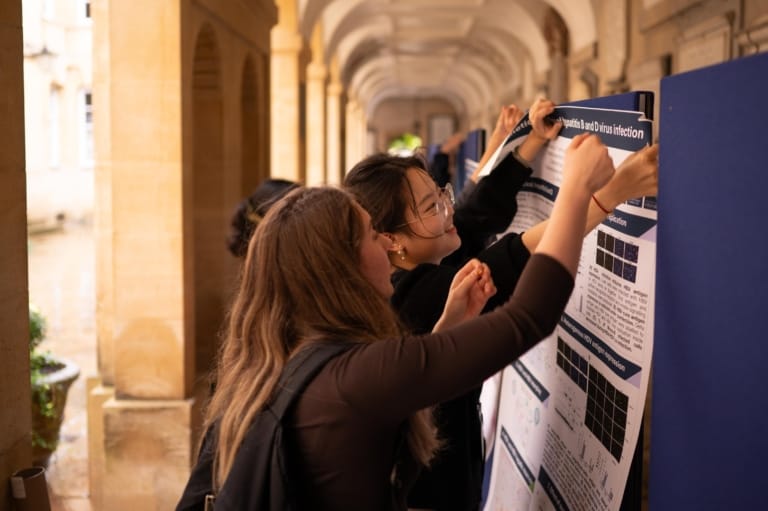Lister Fellow Professor Rickie Patani is leading a major new research project to explore the cellular mechanisms behind Motor Neurone Disease (MND). The project is funded by the My Name’5 Doddie Foundation (MNDF), a charity set up by Scottish rugby star Doddie Weir, who lived with the condition.
Rickie and his Patani Lab colleagues will investigate how DNA damage might contribute to the onset and progression of MND. Current data suggests that DNA damage and errors in DNA repair are important in MND, but more work is needed to explore how and why.
DNA damage and protein problems
Some DNA damage is inevitable, even in healthy people. But when damage levels are high and go on for a long time, they can lead to genomic instability, where there are high DNA mutation levels leading to health problems.
There are known mechanisms that seem to cause high levels of DNA damage in MND. They result from problems with RNA-binding proteins – key players in the creation of new proteins from DNA. In 97% of people with MND there are problems with an RNA-binding protein called TDP-43.
Problems with RNA-binding proteins can lead to DNA being ‘mistranslated’ when it’s used to build new proteins for the body. This can lead to faulty proteins, and to DNA being left vulnerable to damage during the translation process.
It may be that these problems are part of an escalating feedback loop, where genomic instability leads to RNA-binding protein dysfunction, which leads to translation errors, which lead to more genomic instability. This vicious cycle may amplify over time, leading to the degeneration of a person’s health.
Investigating the connection between DNA, RNA and MND
The Patani Lab team will study DNA and RNA sequencing using stem cells taken from the skin of people with MND and reprogrammed into motor neurons. They will use fluorescent imaging and other techniques to detect the kind of translation errors caused by faulty RNA-binding proteins, and observe any relationships between these and DNA damage.

Pictured is Rickie’s colleague Dr Giulia Tyzack, Senior Research Fellow on the study, wearing a lab coat embroidered the foundation’s logo. Dr Tyzack, Rickie and Professor Simon Boulton are co-investigators on the project.
The My Name’5 Doddie Foundation
International rugby union icon Doddie Weir OBE (1970-2022) set up MNDF in after being diagnosed with the disease in 2016. Although Doddie passed away in 2022, his legacy goes from strength to strength, with high-profile fundraising generating the funds for major research like that of Rickie and his team.
MNDF has pledged more than £11 million to research towards a cure for MND so far. The ‘5’ in the charity’s name recalls the number on Doddie’s shirt when he played for Scotland, and for the teams Melrose and Newcastle Falcons.



